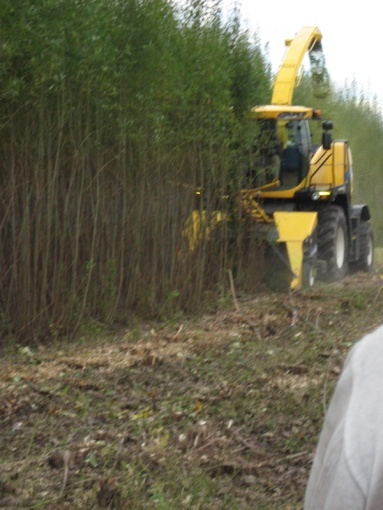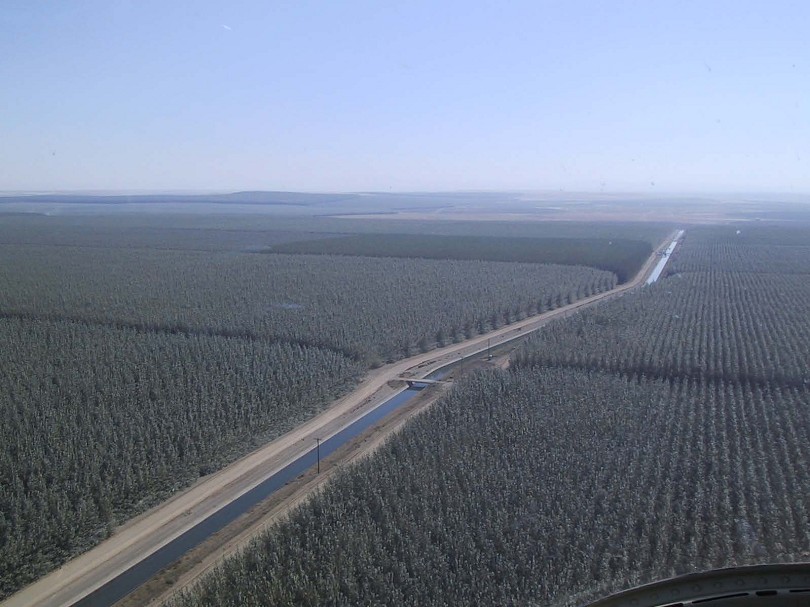The Biomass Crop Assistance Program (BCAP) of USDA Farm Service Agency “provides financial assistance to owners and operators of agricultural and non-industrial private forest land who wish to establish, produce, and deliver biomass feedstocks.” This includes woody crops such as poplar (Populus spp.) and willow (Salix spp.), but also various other cellulosic crops such as switchgrass (Panicum virgatum) and giant Miscanthus (Miscanthus giganteus).(http://www.fsa.usda.gov/FSA/webapp?area=home&subject=ener&topic=bcap).
Willow crops
Among the various projects funded through this initiative ($4.3 million US) is the establishment of 3,500 acres (1,416 hectares) of SRIC (hybrid) willow crops for the production over 100 MW of power to meet New York State’s goal of “sourcing 24 percent of electric and power generation from renewables by 2013.” This project relies on the extensive work done by the State University of New York (SUNY) willow breeding and selection program (photo at right). Many of the selected willows can trace their ‘roots’ to the University of Toronto’s willow breeding and selection program headed by the late Dr. Louis Zsuffa. (http://www.fsa.usda.gov/FSA/webapp?area=home&subject=ener&topic=bcap-pjt-bloc-ten).
Poplar crops
Other funding (up to $17,127,000 US) has been set aside for the establishment of approximately 7,000 acres (2,833 hectares) of SRIC hybrid poplar crops for the production of liquid fuels in Oregon. (http://www.fsa.usda.gov/FSA/webapp?area=home&subject=ener&topic=bcap-pjt-bloc-nine).
|
Photo: courtesy GreenWood Resources |
These crops will be grown in partnership with GreenWood Resources on the irrigated poplar tree farm at Boardman (OR) (photo at left) as well as on several parcels of leased non-irrigated lands in Oregon and Washington States and will utilize hybrid poplar bred and selected by the company. Activities on the leased lands involve elements of extension and outreach to rural communities in cooperation with Washington State University, which is a ‘land grant’ University and as such has responsibility for agricultural extension activities. (http://www.greenwoodresources.com/).



